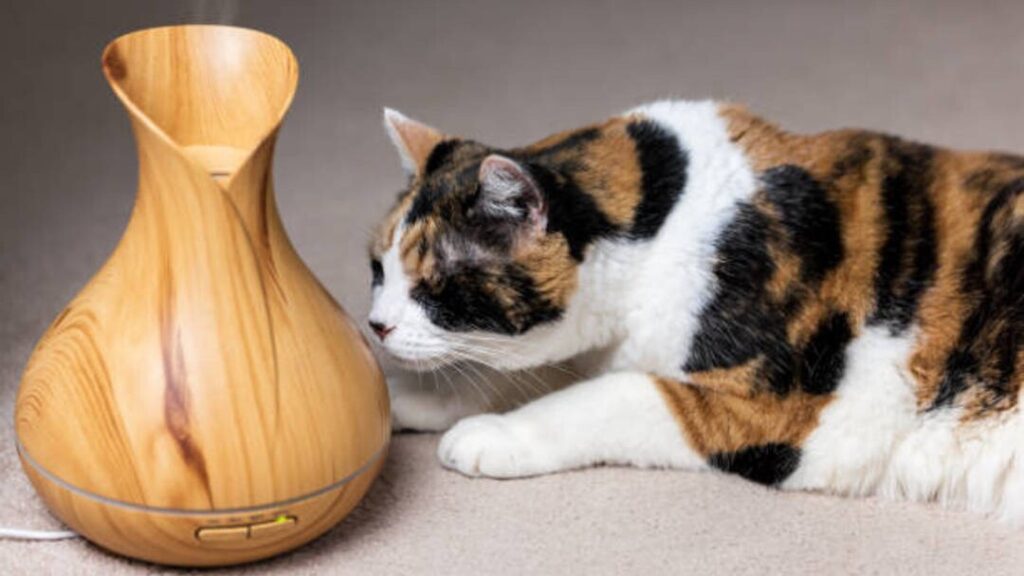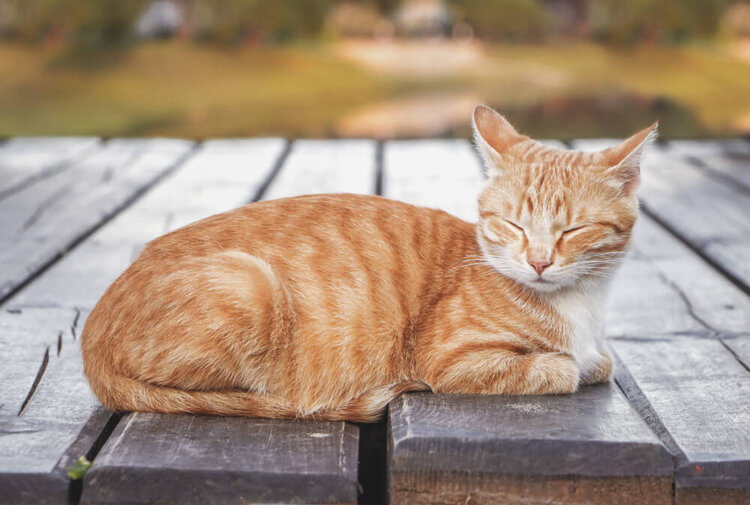Aromatherapy is having a minute in the world. It is a trendy way of treating a plethora of conditions such as anxiety, insomnia, and pain.
Essential oils possess antifungal, antiviral, and antibacterial properties. Thus, they are used to treat a wide variety of issues.
Although science has just recently backed aromatherapy, essential oils have been in use for millennia.
While marketed as safe and quite beneficial, some essential oils are sadly risky to pets.
If you particularly have a cat, you cannot go picking anything and bring it home. The feline system is extremely sensitive.
There are countless reports of cats losing their lives from ingesting or coming in contact with essential oils.
Today we take a look at the popular Vetiver essential oil. Is it safe for your kitty?
First Things First…What is Vetiver?
If you hail from the Asian countries of India or Sri Lanka, you are probably aware of Vetiver essential oil.
The locals refer to it as Khuskhus, and it is a revered product in aromatherapy, home cleaning, spas, and more applications.
The oil is harvested from the Vetiver tree which is a perennial that grows in India.
The tree is green and clumpy and grows up to five feet tall. It falls in the bunchgrass family alongside citronella and lemongrass.
The aromatic essential oil is harvested from the Vetiver’s aged roots through steam distillation.
It is best described as having an earthy, grounding, and sensuous fragrance.
Because of its aroma, the oil is a common ingredient in soaps, perfumes, and cosmetics.
According to Healthline, it is also used in aromatherapy to boost mental alertness, promote good breathing while sleeping, and fight anxiety.
With antioxidant properties, the oil can also slow down aging.
Usage around Cats

Vetiver is not listed on the ASPCA and Pet Poison Helpline websites as being safe or not.
Other leading pet websites also haven’t commented on it as well. But then again research is unlimited when it comes to cats around many essential oils.
At this point, we are forced to check the chemical composition of the oil to know whether it is safe or not.
The main danger with essential oils in cats is the fact that felines lack the enzyme used to process some of the components in the oil.
Once in your cat’s system, the essential oil doesn’t get metabolized as it should and ends up damaging the organs. This causes respiratory distress, vomiting, diarrhea, lethargy, and a host of other symptoms.
Two of the most hazardous components in essential oils include phenols/phenolic compounds as well as ketones.
Any oil with these compounds should be kept away from the cats as much as possible.
Studies published on the chemical composition of Vetiver show that it contains sesquiterpenes as well as aliphatic and aromatic compounds. The main components are the terpenes or terpenoids.
Terpenes are safe for humans but unsafe for our pet friends. Limonene, a compound found in citric fruits such as lemons and grapefruit, is an example of a terpene.
If you know a thing or two about citrus, you are probably aware that they are very risky in the life of cats. Terpenes are quickly absorbed by cats either through the skin or inhalation.
Even when diffused, the oil becomes aerosolized, eventually making its way to the lungs.
Once in the lungs, it is only a matter of time before it reaches the liver.
Because the liver lacks the necessary enzymes to digest the terpenes, there will be a buildup of chemicals that may cause permanent liver damage.
The kidneys are likely to suffer in the process, too.
Signs of Trouble

As a good cat owner, it is your responsibility to carry meticulous background research about a product before purchasing it in the first place.
However, sometimes you get carried away and use something that can harm your pet.
In case you have already used Vetiver essential oil around your kitty, don’t panic.
If your cat was around when you diffused the oil or got some on their skin through topical application, you want to monitor them for signs of distress. These include the following:
- Skin Injury: Watery eyes, physical injury to the nose/throat/or eyes, squinty eyes, red lips, excessive drooling, runny nose, pawing at the face, or red skin.
- Respiratory Irritation: Excessive sneezing, difficulty breathing, coughing, wheezing, or panting with an open mouth.
- Brain Impairment: Lethargy, muscle tremors, depression, wobbliness, and a hard time standing up. Severe cases include seizures, paralysis of the hind limbs, and low heart rate.
- GI Discomfort: Vomiting, excessive drooling, and diarrhea.
- Liver Damage: Vomiting, bruising, unquenchable thirst, increased urination, and yellowing of the gums/eyes/skin.
If your kitty is exhibiting any of the above symptoms, time is of the essence. The toxins in their body will need to be flashed out before they cause organ damage.
The vet will run tests, hook the cat on an IV if they have lost a lot of fluids, and start to get rid of the toxins.
Reducing the Risk
Cats are curious by nature. They explore their worlds and often use their mouths, paws, and noses.
If you place an essential oil in the medicine cabinet and leave it open, your kitty will find it.
His strong scent will draw him out into the drawer and if he can open the lid, things will get nasty.
To be safe around essential oils, follow the guidelines below:
- Keep the oils away from the cat: If you must use Vetiver, ensure it is out of reach of your kitty.
- Avoid cleaning with Vetiver: cats love rubbing on surfaces and may come in contact with the oil.
- Don’t touch the cat after handling the oil: wash your hands thoroughly before you play or pet the pet.
- Keep the cat away from your diffuser: when using a diffuser or a nebulizer, make sure the cat is not in the room. Before letting the kitty back in the room, open all windows and make sure the room is ventilated.
- Go for diluted oils: diluted Vetiver essential oil is always better than the undiluted version.
Parting Thoughts
Your cat’s safety and well-being is 100% your responsibility.
Essential oils are awesome but they are quite risky for your cat. There is only a handful that will not harm your kitty.
Sadly, Vetiver isn’t one of them. Stay away from it if you can.
If you insist on using it, exercise caution as outlined above.
Which other essential oil isn’t safe around your kitty? Find out from the following posts:

Hi! I am Eleanor Price. I started this website after my cat, Louie, almost died from a case of botulism (a type of food poisoning often caused by bacteria that grow on food items). Turned out that my cat’s diet was the problem. I have made it my duty to provide the best information and recommendations about everything cat lovers need to know about their felines’ health and wellbeing. My goal is to find the most informative content on anything feline-related and share it with fellow hardworking kitty lovers.

